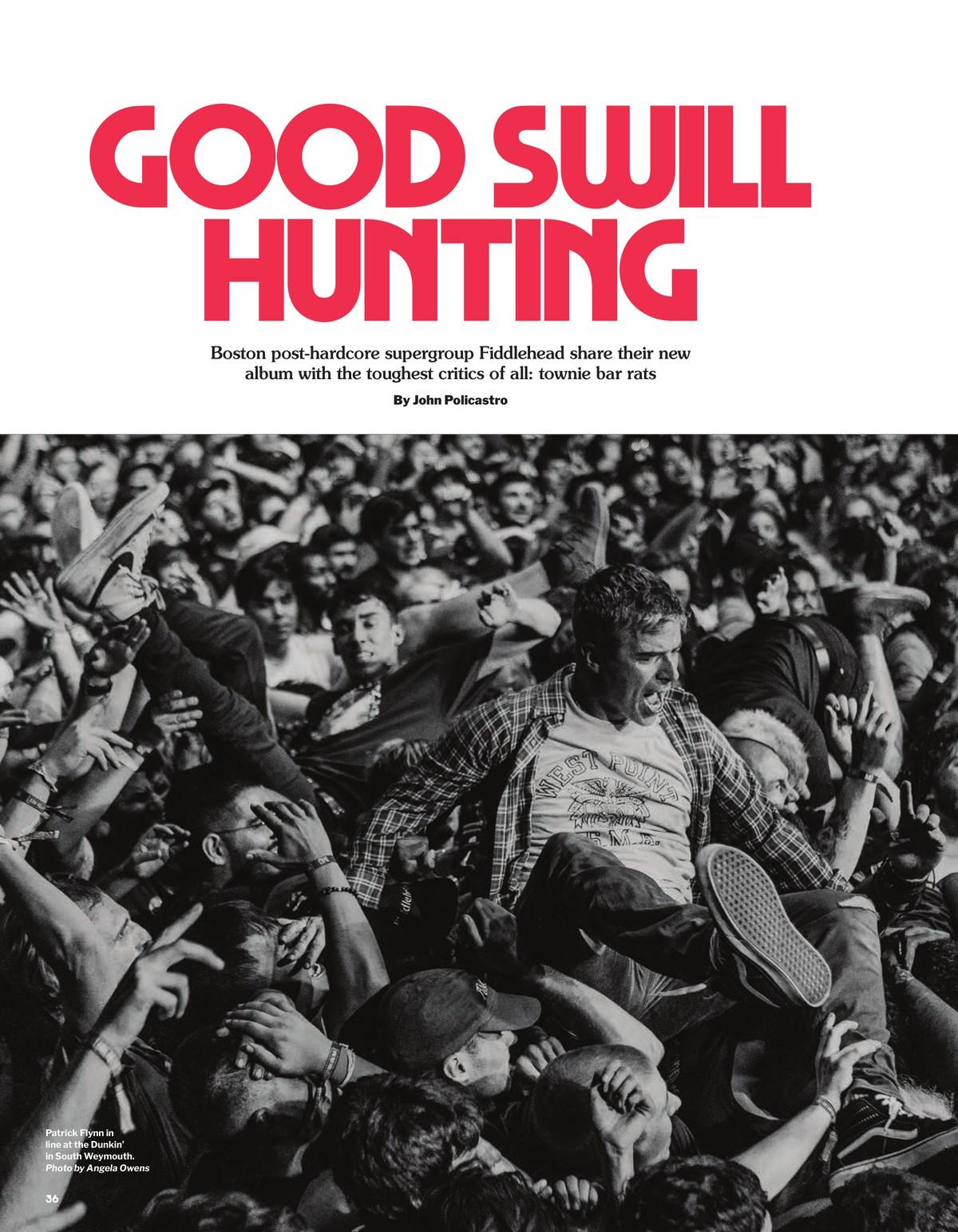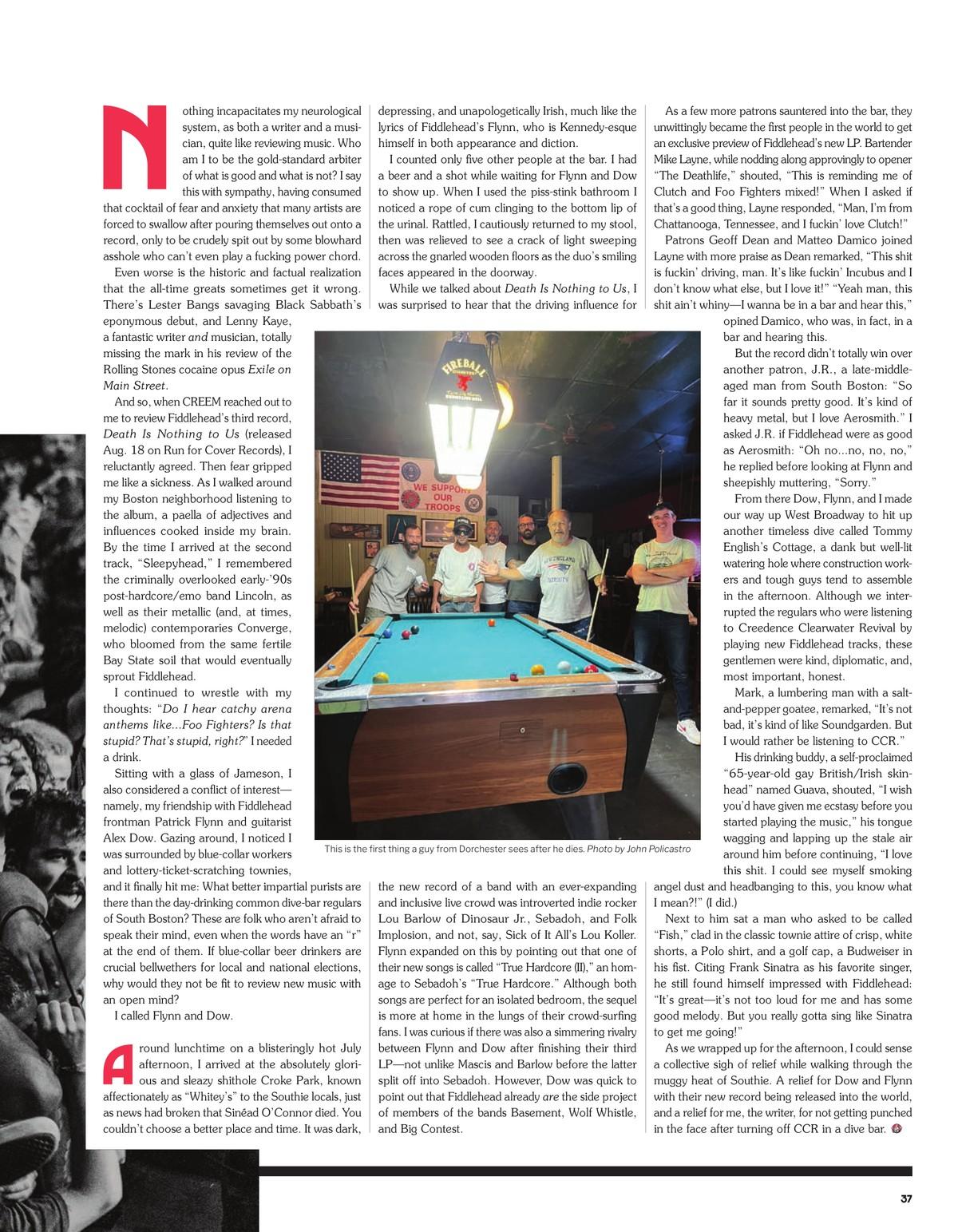GOOD SWILL HUNTING
Boston post-hardcore supergroup Fiddlehead share their new album with the toughest critics of all: townie bar rats.
December 1, 2023


Loading...

Boston post-hardcore supergroup Fiddlehead share their new album with the toughest critics of all: townie bar rats.


Loading...